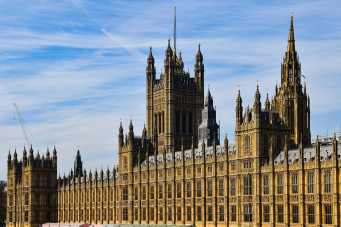
In The Frame - March '17
Streaming / Online / Tech
Barclays has emerged as a significant player in UK independent productions funded by over-the-top (OTT) services including Netflix and Amazon. The bank's new £100 million fund will enable TV companies to borrow money over a longer period – a requirement of creating content for subscription video services. Traditionally, production funding is repaid as content is delivered, with the broadcaster paying the production company and financial backer simultaneously. Revenues received from OTT services, however, are often spread over a much longer term, which can cause financial challenges for producers.
MGM Television is to become the first major US studio to develop and produce short-form programming for Snapchat’s Discover platform. The Fargo producer is developing a range of formats including documentaries, reality TV and scripted comedies and dramas which will run to up to five minutes. The deal follows partnerships with broadcasters including the BBC, Discovery and Turner.
Seven 360-degree cameras will be used at this year's Champions League final to broadcast live pictures in VR and on social media, Jamie Hindhaugh, BT Sport’s COO, told delegates at TV Connect in a panel discussion on ‘Broadcast innovation in sport’. Discovery also suggested that their acquisition of a wide range of exclusive territorial rights to future Olympic Games would help make them “more relevant” to sports fans by deepening their engagement, with VR a possibility.
SAM (Snell Advanced Media) has unveiled Morpheus UX, a control interface for the company’s Morpheus playout automation and ICE channel-in-a-box product line. According to the company’s website, Morpheus UX is “set to change the face of multi-channel playout by giving customers an unmatched level of adaptability so they can precisely customize their channel views and focus on the specific functionality they need.”
BBC News
The BBC has, for the first time, made its 24-hour World News linear channel available via one of the major international subscription video-on-demand (SVOD) services having agreed a deal with Nippon TV’s Hulu Japan service. It'll be available immediately on desktops in Japan and become available on mobile later this year.
A report by the BBC Trust (which is soon to be replaced by Ofcom) has found that the average age of people watching BBC1 and BBC2 is now over 60, due to the rise in popularity of OTT services. But, as reported in The Guardian, “it’s not that young people aren’t watching BBC content...last year the broadcaster reached 91% of 16 to 34-year-olds in one way or other”.
The BBC has pushed for new laws guaranteeing their shows will get more prominent positions on streaming services than competitors such as Sky or Netflix. The corporation – along with Channel 4, ITV and Channel 5 - are concerned that their programmes may not be as easy to find and that commercial rivals could prioritise their own shows instead. The House of Lords will debate an amendment to the digital economy bill on Monday.
And finally…
- Phoebe Waller-Bridge's hit BBC3 comedy, Fleabag, will be back for a second series, the writer has confirmed.
- Following a strategic review of its global business, Ericsson is considering selling its broadcast arm. Ericsson Broadcast & Media Services, which employs approximately 2,500 people globally, offers media management, QC, online video services, post-production, playout and access services, and currently holds playout contracts with BBC, ITV, Channel 4, Channel 5, UKTV and BT Sport.
- ITV is to broadcast a three-part documentary exploring the legalisation of marijuana, “providing a balanced look at the pros and cons”.
- Jamie Oliver has signed a new three-year deal to exclusively make programmes for Channel 4.
- Staying with Channel 4, the broadcaster has announced it has taken a minority stake in new British virtual reality (VR) business Parable, “focussing on innovative content creation with storytelling at its heart”.
- In case you missed it, we at Frame 25 have recently produced an infographic that looks at TV broadcasting, and asks: Is The Future Bright or Bleak?
From the latest news to the latest positions – click here to see Frame 25’s most recent additions to its list of available TV jobs

How the Employment Rights Act 2025 Is Reshaping the Freelance Market

Umbrella Company Reforms - An Overview
